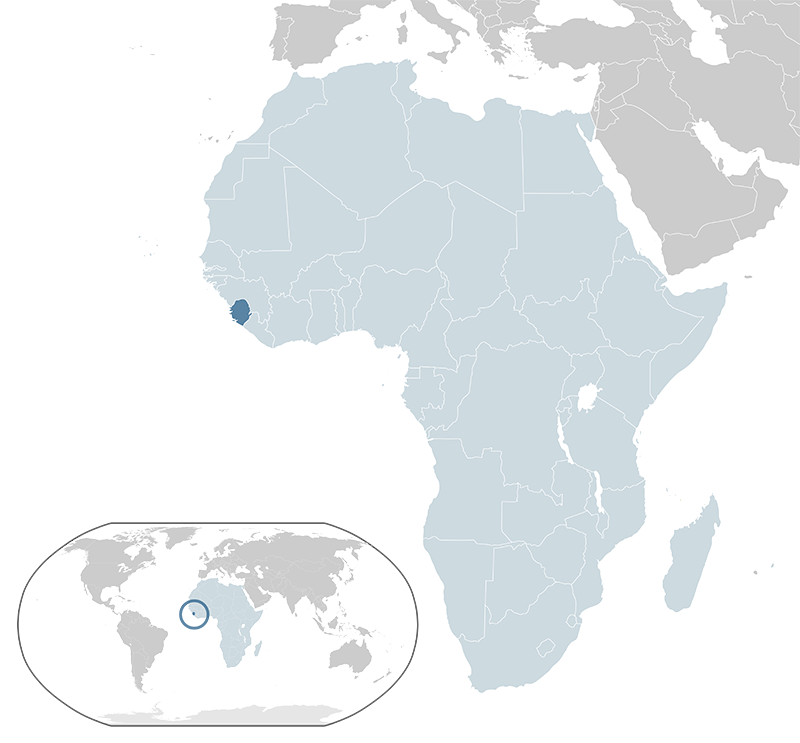Sierra Leone
Sub-Saharan Africa

(Download current filtered dataset)
| Title▲▼ | Population▲▼ | Bibles▲▼ | Resources▲▼ |
|---|---|---|---|
| Mende (Sierra Leone)Mɛnde yia | 2,100,000 | 3 | 58 |
| TimneKʌThemnɛ | 1,955,000 | 2 | 21 |
| Krio | 642,000 | 3 | 8 |
| West-Central LimbaYimba | 440,000 | 3 | 4 |
| Kuranko | 360,000 | 2 | 33 |
| Kono (Sierra Leone)Kono | 326,000 | 1 | 12 |
| PularFuuta Jalon | 239,000 | 1 | 38 |
| SusuSosoxi | 190,400 | 4 | 16 |
| LokoLandogo | 179,000 | 3 | 21 |
| SherbroAmampa | 179,000 | 2 | 12 |
| Eastern ManinkakanMalinke | 140,000 | 1 | 11 |
| Southern KisiGisi | 135,600 | 2 | 8 |
| English | 100,000 | 243 | 359 |
| Sierra Leone Sign LanguageLenguaje de Señas Bolivianas LSB | 71,400 | ||
| Northern KissiGizi | 63,510 | 1 | 26 |
| YalunkaJalunga | 47,730 | 2 | 24 |
| Vaiꕙꔤ | 23,860 | 1 | 4 |
| Hindiहिंदी | 15,290 | 13 | 105 |
| Gola | 13,000 | 2 | 9 |
| KlaoKru | 12,000 | 3 | 3 |
| Bullom SoBolom | 7,000 | 2 | |
| BassaƁǎsɔ́ | 7,000 | 1 | 5 |
| YorubaÈdè Yorùbá | 6,440 | 5 | 18 |
| Modern Greek (1453-)Νέα Ελληνικά | 1,200 | 24 | 10 |
| East LimbaYimba | 700 | 14 | |
| N'Koߒߞߏ | |||
| MandinkaMandingo | 1 | 14 | |
| Bom-KimBom–Krim | 14 |
1
-
28
/
28
| Title | Population | Bibles | Resources |
|---|---|---|---|
| Mende (Sierra Leone) | 2100000 | 3 | 58 |
| Timne | 1955000 | 2 | 21 |
| Krio | 642000 | 3 | 8 |
| West-Central Limba | 440000 | 3 | 4 |
| Kuranko | 360000 | 2 | 33 |
| Kono (Sierra Leone) | 326000 | 1 | 12 |
| Pular | 239000 | 1 | 38 |
| Susu | 190400 | 4 | 16 |
| Loko | 179000 | 3 | 21 |
| Sherbro | 179000 | 2 | 12 |
| Eastern Maninkakan | 140000 | 1 | 11 |
| Southern Kisi | 135600 | 2 | 8 |
| English | 100000 | 243 | 359 |
| Sierra Leone Sign Language | 71400 | 0 | 0 |
| Northern Kissi | 63510 | 1 | 26 |
| Yalunka | 47730 | 2 | 24 |
| Vai | 23860 | 1 | 4 |
| Hindi | 15290 | 13 | 105 |
| Gola | 13000 | 2 | 9 |
| Klao | 12000 | 3 | 3 |
| Bullom So | 7000 | 2 | 0 |
| Bassa | 7000 | 1 | 5 |
| Yoruba | 6440 | 5 | 18 |
| Modern Greek (1453-) | 1200 | 24 | 10 |
| East Limba | 700 | 0 | 14 |
| N'Ko | 0 | 0 | 0 |
| Mandinka | 0 | 1 | 14 |
| Bom-Kim | 0 | 0 | 14 |





